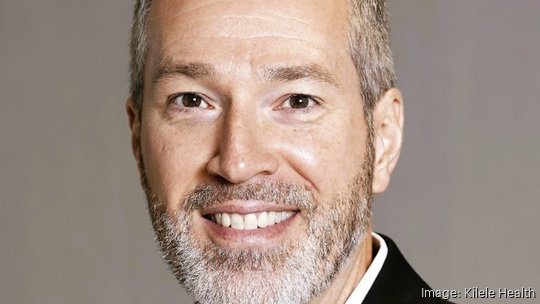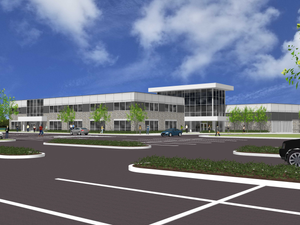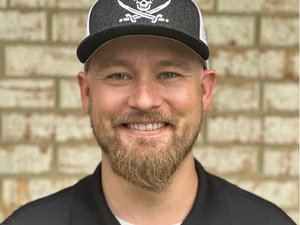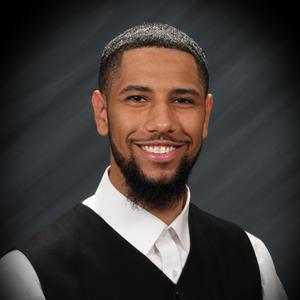
The National Science Foundation has awarded a Dayton health technology startup $1 million in funding. The award enables the startup to launch its next phased of research and development as it steps closer to commercialization.
Kilele Health received a phase two SBIR award totaling $1 million dollars earlier in March. The award brings the startup's funding total to $2.8 million.
Kilele Health Co-Founder, CEO and Director Andy Cothrel, also president of Rushlight Ventures, said Kilele Health has been hard at work executing the science on its monitoring sensor – which analyzes the biomarkers for heart failure. The startup will leverage recent funding to dip into the engineering side of its research and development, determining how the sensor can be manufactured and assembled repeatedly.
How does Kilele Health’s monitoring device and platform work?
About one million patients get discharged from the hospital every year with heart failure. 25% of them are back in the hospital within 30 days. Cothrel said a major cause is difficulty in dosage of the right medication quickly.
“There's multiple medications and everybody metabolizes them a little differently and it's challenging,” Cothrel said. “If you can get them on guideline directed medical therapies faster, readmissions go down 44%. That's a purely good thing - Everybody wins.”
Kilele Health’s product, the SunVida Platform, focuses on preventing readmissions in the 30-to-60-day period after discharge while medication is selected and corrected. If and when medication is altered in the future, the patient can once again utilize the monitoring technology.
The sensor, which once applied rests just below the skin, monitors biomarkers for heart failure. From there, the technology reports to a smart phone or dedicated reader, sending the information to a cloud where an algorithm analyzes it and sends information to a physician for monitoring and decision making.
The works similarly to continuous glucose monitoring devices, used by diabetics.
“Continuous glucose monitoring is growing like crazy,” Cothrel said. “We just want to measure something different but have the user experience be as identical as we can. And that's huge – because the time and money that most startups have to spend figuring that out, we don't have to.”
When does it launch?
Kilele’s team of 10 is currently working toward a 2027 launch. Cothrel said the product is likely to see FDA approval in Q4 2026. Once manufacturing begins, processes are likely to stay in the state.
“If you're making something out of metal and plastic and you can't get it done in Dayton, you're just not trying,” Cothrel said. “We are not looking at making anything outside of the US.”
While Cothrel believes Kilele Health can build a successful company on the one heart failure-focused idea, expansion into artificial intelligence analysis of other medical uses is a likely future for the technology.
“We want the tech to reach all the places it can reach,” Cothrel said. “It’s a fundamentally enabling technology. I won't live long enough to pursue all the opportunities.”
What’s next?
Cothrel said things appear promising for their next potential award through the National Institutes of Health phase one SBIR award. If received, the funds would bring hundreds of thousands to Kilele for continued research and development.
The startup plans to continue to pursue additional funding needed to finance commercialization plans.
“We have multiple corporate partners, who are very interested in this platform and have been willing to finance technical work, just so they can see the data,” Cothrel said. “That's how excited they are and we're excited about them being excited.”
Alongside the National Science Foundation and unnamed partners, Cothrel noted the significance of $150,000 in funds through TVSF phase II in Columbus, secured through the Dayton Entrepreneurs’ Center.
“In a very difficult capital raising environment that has made all the difference in the world,” Cothrel said.






